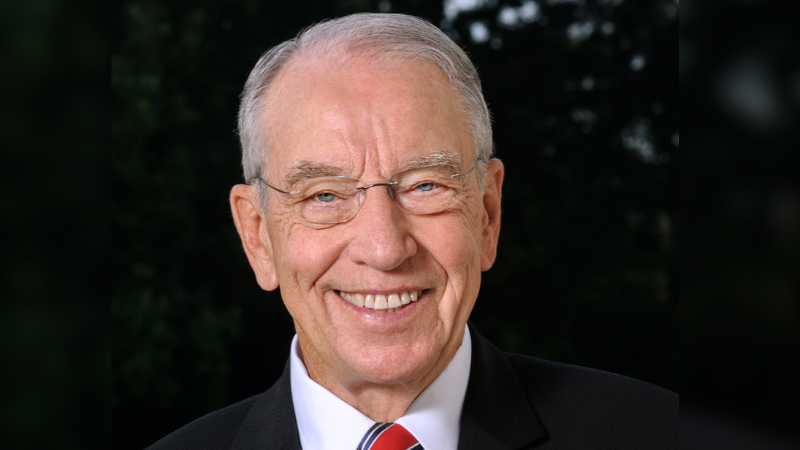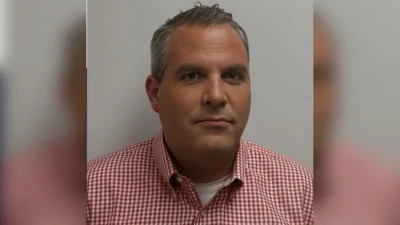Chuck Grassley | Chuck Grassley Official Website
Chuck Grassley | Chuck Grassley Official Website
BUTLER COUNTY, IOWA – U.S. Sen. Chuck Grassley (R-Iowa) is continuing to push for transparency from the Secretaries of Agriculture and Health and Human Services regarding members of the 2025-2030 Dietary Guidelines Advisory Committee (DGAC) who may bring serious conflicts of interest to their work on the committee.
Despite Grassley’s previous concerns about potential conflicts of interest among DGAC members, particularly regarding the appointment of Dr. Fatima Cody Stanford, who has made tens of thousands of dollars for her promotion of weight loss and obesity drugs, the Departments of Agriculture and Health and Human Services have thus far refused to provide clarity by releasing committee members’ Confidential Financial Disclosure Reports. This continued obscurity defies the recommendations of a 2017 report issued by the National Academies of Science, Engineering, and Medicine (NASEM), which advised releasing “any known conflicts” during the committee selection process
After Grassley’s previous letter, HHS released a four page report on the 2025 Dietary Guidelines Advisory Committee’s disclosures and potential conflicts of interest. However, these disclosures were aggregated and not attributed to individual committee members.
In a letter to USDA Secretary Tom Vilsack and HHS Secretary Xavier Becerra, Grassley once again called for the release of these confidential financial disclosures and requested that DGAC suspend writing any new dietary recommendations until conflicts of interest have been resolved.
“While members of the committee have voluntarily agreed to disclose their financial relationships, activities, and interests, the link supplied in your letter aggregates the conflicts. Conflict of interests are not imputed to other members of the committee,” Grassley said.
“If you continue to ignore these recommendations, you will again fail to deliver nutrition recommendations that policymakers, healthcare professionals, educators, and families across the country can rely on. Ignoring these recommendations has become a pattern that goes against the will of Congress, and prevents HHS and USDA from transparent policy making,” Grassley continued.
“Congress and the American people deserve transparency and accountability from the people who are writing our future dietary guidelines,” Grassley concluded.
The full text of the letter can be found HERE and below. The full text of HHS's initial response to Grassley can be found HERE.
May 25, 2023
The Honorable Xavier Becerra
Secretary of Health and Human Services
U.S. Department of Health and Human Services
200 Independence Avenue, S.W. Washington, DC 20201
The Honorable Tom Vilsack
Secretary of Agriculture
U.S. Department of Agriculture
1400 Independence Ave., S.W. Washington, DC 20250
Dear Secretary Becerra and Secretary Vilsack,
I appreciate your response to my concerns about conflicts of interest that may exist among members of the 2025-2030 Dietary Guidelines Advisory Committee (DGAC). While your letter acknowledges some progress Department of Health and Human Services (HHS) and Department of Agriculture (USDA) have made toward greater transparency, I request that DGAC suspend writing the new recommendations until DGAC comes into full compliance with the recommendations made by the National Academies of Sciences, Engineering, and Medicine (NASEM) in their 2017 report to Congress.
NASEM’s report, which was mandated by Congress, stated in recommendation three that the HHS and the USDA should be, “publicly posting a policy and form to explicitly disclose financial and non-financial biases and conflicts,” of committee members. While members of the committee have voluntarily agreed to disclose their financial relationships, activities, and interests, the link supplied in your letter aggregates the conflicts. Conflict of interests are not imputed to other members of the committee. Conflicts are specific to individual committee members, and information on these individual conflicts is needed to determine their significance. This rightfully leads the public to call into question the objectivity of the guidelines.
The 2023 NASEM Report continues to point to flaws in the Dietary Guidelines for America process. The report states that, “opportunities remain to improve the deliberative nature, transparency, rigor, and integrity of the DGA process as well as the ability of the DGA to address the needs of the diverse U.S. population.” If you continue to ignore these recommendations, you will again fail to deliver nutrition recommendations that policymakers, healthcare professionals, educators, and families across the country can rely on. Ignoring these recommendations has become a pattern that goes against the will of Congress, and prevents HHS and USDA from transparent policy making.
While I acknowledge that the confidential financial disclosures referenced in your letter are not accessible to the public, they are not exempt from congressional oversight. The Privacy Act and the Ethics in Government Act do not restrict congressional inquiries. Therefore, I again ask you to provide me with the DGAC's Confidential Financial Disclosure Reports (OGE 450), a key step in gaining the trust of Congress, and the public, in these important guidelines.
In your letter, you also note that where disclosed information presents an actual or potential conflict of interest, the special government employee (SGE) may be recused or disqualified from the matter. However, you note that a waiver of the potential conflict of interest is available. In other words, this could mean that significant conflicts of interest or the appearance of conflicts of interest were allowed to exist because an agency ethics official determined the committee member's advice was important enough to offset the conflict. I requested this information on SGEs, including information on ethics waivers granted to them from HHS and USDA in March, but neither department has responded. So I reiterate that request and ask that you respond in a timely manner to congressional requests.
Congress and the American people deserve transparency and accountability from the people who are writing our future dietary guidelines. Please answer and provide the requested information no later than June 8, 2023.
Original source can be found here.




 Alerts Sign-up
Alerts Sign-up